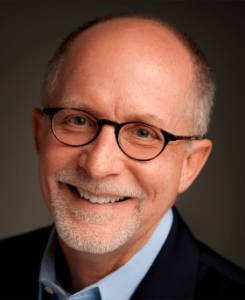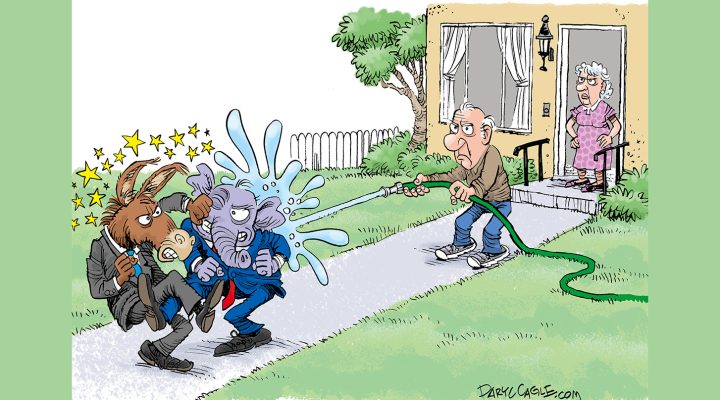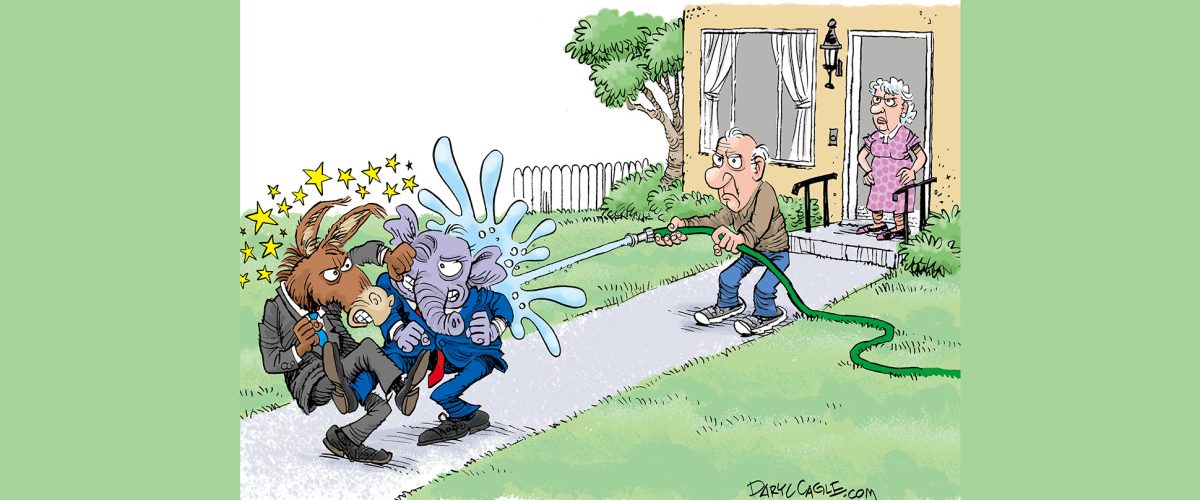This election season has been a hard spiritual journey, as well as a grimy political slog.
Rancor ran rampant, spilling out of campaign rallies and whistlestops, bounding onto our screens. Candidates mongered fear, amplified animosity and spewed indignation. Now, we can get back to the nightly news sponsored by drugs you can’t pronounce, created to treat diseases you never heard of.

Marv Knox
Of course, political campaigns have been vicious at least since 1800, when President John Adams and Vice President Thomas Jefferson took off the gloves and started swinging. And campaigners long have manipulated ignorance while preying on fear. For, example, “My opponent’s mother is a sexagenarian, his sister is a thespian and his brother subscribes to a phonographic magazine.”
But this year has been different.
Previously, even when U.S. campaigns turned nasty, they still boiled down to battles of ideas set within the context of democracy. Candidates may have attacked each other’s character, but they ultimately pursued support for their ideas about how to run the government and the best path forward for the country.
(Side note: A wistful discussion of democracy reflects an old white man’s privilege. From the beginning of our country, “democracy” did not include people of color and women. And even after they received the right to vote, powerful white men often figured out how to disenfranchise them. But we aspired to democracy. And since the mid-1960s, we tried to live up to it.)
“Since the previous president refused to admit he lost the 2020 election and empowered acolytes to multiply his ‘stop the steal’ lies, democracy has been up for grabs.”
But since the previous president refused to admit he lost the 2020 election and empowered acolytes to multiply his “stop the steal” lies, democracy has been up for grabs. You could say it’s been “up for a vote,” but that would only be partially true. This year, a majority of Republican candidates for Senate, House and significant state positions — 291 — denied or questioned the outcome of the last presidential election. Beyond that, precious few who affirmed that outcome rebutted their compatriots.
So, this year, democracy has been on the ballot like never before. Of course, gerrymandering, state voter-suppression laws and unaccounted for “dark money” in campaigns already eroded democratic principles. But this time, hundreds of high-office candidates indicated their willingness to upend democracy.
Did you ever imagine you would care about the outcome of elections for governor and secretary of state in places like Arizona and Pennsylvania? Key office holders in those and a few other swing states potentially could declare the outcome of the next presidential election, no matter what their voters say.
Did you ever imagine democracy could die in our lifetime? Early returns indicate it received a reprieve. But now that it’s been up for debate and abolition, God only knows what will happen in subsequent elections.
Speaking of God, I confess this election season has been a deeply troubling spiritual experience. Some days, I practically “prayed without ceasing” about the status of our nation and world. But most days, I felt frustrated and despondent, and since God already knew my opinion, I didn’t want to talk/pray about it. As long as I wasn’t talking to — or, obviously, listening to — God about politics, I didn’t feel like talking/listening about anything else. Not good for one’s soul.
Somehow, I still received a message from God. It wasn’t pleasant; confrontation with sin never is. I realized I was worshiping an idol. You know what idolatry is — trusting anything other than God for salvation or ultimate protection.
At first, I misidentified my idol. I thought it was politics. I thought my despondency stemmed from impending political doom. I was putting too much faith in candidates I believe to be decent, faithful and just to save our nation from itself.
But then I realized politics wasn’t my idol. I idolized democracy.
Good and positive idols are the most seductive. For almost 250 years, most Americans — and multitudes elsewhere — would have said democracy is a powerful force for good.
“Democracy is not the ultimate source of security.”
True, but democracy is not the ultimate source of security. While democracy deserves support and sacrifice, it does not deserve absolute trust. That’s space reserved for God alone.
I should have known this. Across four decades as a journalist, I interviewed numerous Christians who survived authoritarian regimes and struggled as religious and cultural minorities. Inevitably, I would ask, “How can we pray for you?” Invariably, they would say something like: “Do not pray for us to be delivered from oppression. Pray for us to be faithful.”
Their words echoed in the Lectionary reading nine days before the election. The prophet Habakkuk spoke one of the most vital refrains in all salvation history, repeated by the Apostle Paul, the writer of Hebrews and Martin Luther: “The just shall live by faith,” also accurately rendered, “The righteous shall live by faithfulness.”
Only God, not even a noble endeavor such as democracy, deserves faith. And faithfulness demands righteous living, no matter the political climate or electoral outcome.
In fact, the necessity of faithfulness multiplies when democracy faces peril. The faithful must take up the responsibility of faithfulness — defined by the prophet Micah as justice, kindness and humility — we otherwise might expect democracy to deliver.
So, will I pray for, vote for and support candidates who champion democracy? Absolutely. But will I invest my absolute trust in democracy? Absolutely not.
Marv Knox founded Fellowship Southwest after editing the Baptist Standard almost 20 years. Now retired, he lives with his wife, Joanna, in Durham, N.C., where he tries to do something useful almost every day.
Related articles:
Trump’s toxicity: A first take on the midterm elections | Opinion by David Gushee
Moderates are an endangered species in the pews, but they aren’t completely extinct at the ballot box | Analysis by Laura Ellis


